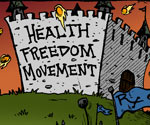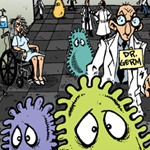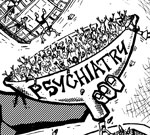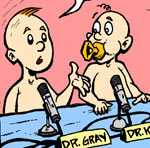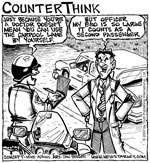Zinc Overdoses - When Using Mineral Supplements, More Is Not Always Better
| Share on Facebook | Share on Twitter | Share on Google+ |
Susan noticed she was beginning to wobble when she walked.
For some strange reason, she was not able to put one foot in front of another. After a few weeks, Susan found that she needed a cane to steady herself even to walk across a room in her home.
Making matters worse, Susan developed chronic sinus and ear infections. They were especially severe, and they did not cause a lot of inflammation, but after three months they did not go away. Once possessing a radiant complexion, she grew more and more pale.
A devoted follower of natural health, Susan had decided to stimulate her immune system with zinc. Instead of taking the recommended maximum of 30 milligrams a day for everyday use and 50 to 65 milligrams for up to three days with cold symptoms, Susan started taking 600 milligrams of zinc capsules each and every day. She felt it couldn't be causing her any harm since she couldn't even taste any bitter or metallic taste when she let the tablets dissolve in her mouth.
Zinc Overdose Symptoms
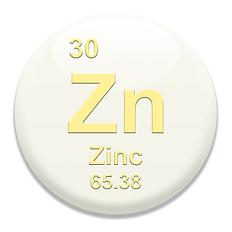 When Susan finally got to the doctor, she was diagnosed not with zinc overdose symptoms but as having an extreme copper deficiency. Too much zinc had displaced almost all the copper in her body, and without copper, her central nervous system had been unable to the enzymes it needs for the coordination centers in the brain. Her cholesterol levels had zoomed to very high levels and it appeared she was well on her way to becoming a diabetic-all because she took 10 times more than the highest recommended dosage of zinc every day and 100 times more than her body's basic needs.
When Susan finally got to the doctor, she was diagnosed not with zinc overdose symptoms but as having an extreme copper deficiency. Too much zinc had displaced almost all the copper in her body, and without copper, her central nervous system had been unable to the enzymes it needs for the coordination centers in the brain. Her cholesterol levels had zoomed to very high levels and it appeared she was well on her way to becoming a diabetic-all because she took 10 times more than the highest recommended dosage of zinc every day and 100 times more than her body's basic needs.
For Susan, the treatment was stopping zinc and starting copper, in her case, by intravenous injection. But people who take lower levels of zinc can also experience zinc toxicity and zinc supplement side effects.
Is Zinc Deficiency Common
Dr. Ranjit Chandra, who was a pediatrician and immunologist at the Memorial University of Newfoundland, and who more recently formulated vitamin and mineral products for the Javaan Corporation in the United States, first addressed the problem of zinc overdoses when taking large amounts of zinc was popular, in the 1980's, pointed out that zinc deficiency was (and is) a common nutritional problem in North America, especially among older adults.
Especially at risk are older adults who eat little or no meat but lots of whole grains and fiber. Zinc deficiencies can cause failures of thymus hormones, which are essential for the maturation of immune cells. A deficiency in zinc early in life can cause lifelong immune deficiency.
When people take as much as 300 milligrams of zinc a day, however, Dr. Chandra point out that immune function actually declines. The white cells known as macrophages, literally the "big eaters" are not attracted to bacteria and do not kill and consume them. Levels of LDL cholesterol go up not just in the bloodstream, but also inside cells.
If you have not taken so much zinc for so long that you also have a copper deficiency, however, treating zinc overdose is very simple. Stop taking zinc. In as little as 24 hours, symptoms will begin to improve. And to ensure that your zinc supplements never cause overdose symptoms, make sure you get 3 milligrams (just 3!) of copper every day, to keep zinc and copper in balance.
-
Skin CareMen Skin Care
-
Free ResourcesFree eBooks
-
When it comes to eating right and exercising, there is no "I'll start tomorrow." Tomorrow is disease.Terri Guillemets
-
Featured Health Supplement
 The restoration and maintenance of normal organ and brain function and a strong immune system is the key to vibrant health and in
avoiding premature-aging!
The restoration and maintenance of normal organ and brain function and a strong immune system is the key to vibrant health and in
avoiding premature-aging!
-




